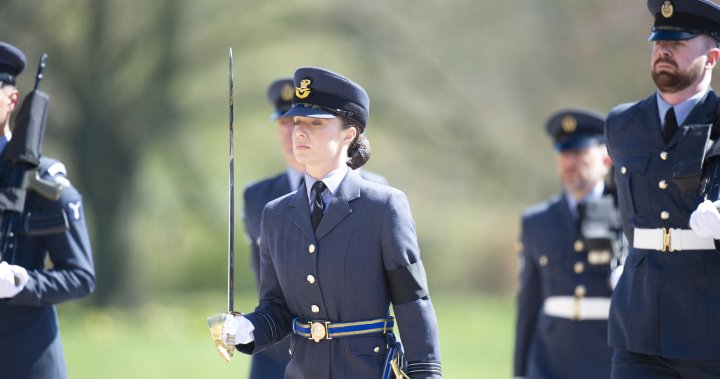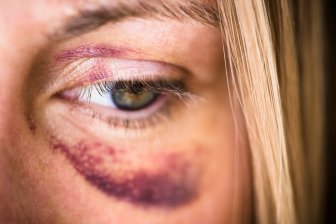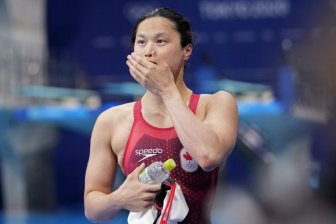Around two-thirds of female veterans in the British armed forces have experienced bullying, harassment or discrimination in their careers, a parliamentary report said Sunday amid an increasingly international reckoning in Canada, the U.S. and the U.K. over military sexual misconduct.
The report also said that women who reported serious sexual offences are “denied justice” by an inadequate military court system and complaints process.
READ MORE: The Canadian military has received more than 700 sexual assault reports since 2016
Parliament’s defense committee found that 64 per cent of female veterans and 58 per cent of serving women said they have experienced bullying, harassment, discrimination in the army. Most say they don’t believe the military does enough to address the problem.
The committee heard accounts of “unacceptable behaviors” experienced by servicewomen, including gang rape, bullying for refusing sexual advances and assault by senior officers. Others reported “witnessing friends being attacked by groups of men but being too afraid to report it,” and said mess halls and accommodation were seen as “places of danger.”
“The complaints system, as it stands, is woefully inadequate and leaves most feeling unable to come forward,” said lawmaker and veteran Sarah Atherton, who chairs the subcommittee on women in the armed forces.
“We also heard accusations of senior officers sweeping complaints under the rug to protect their own reputations and careers.”
She said it was clear that serious sexual offenses shouldn’t be tried in the court martial system.
“It cannot be right that conviction rates in military courts are four to six times lower than in civilian courts. Military women are being denied justice,” Atherton said.

Around 4,200 women, including about one in 10 serving female personnel, contributed to the inquiry.
It was the first time the Ministry of Defense lifted the usual restrictions preventing personnel from taking part in inquiries. The data mirrors longstanding, systemic problems identified through military reports over recent years into the “toxic” culture of the Canadian military for women and LGBTQ members.
According to 2016 Canadian data — compiled as a baseline in the wake of the blistering 2015 Deschamps report — 79 per cent of regular force members in that military reported witnessing or experiencing “sexualized behaviour in the military workplace or involving other military members.”
Women were twice as likely as men to report being personally targeted.
READ MORE: Sexual misconduct in Canada’s military remains as ‘rampant’ in 2021 as in 2015: report
Over the past six months however, repeated failures to eliminate the problem and address key recommendations from that report have been in the spotlight amid a reckoning over sexual misconduct in the Canadian military and in particular, allegations levied against multiple senior leaders.
Global News first reported on allegations against now-retired Gen. Jonathan Vance in February 2021. He denies any allegations of inappropriate behaviour. Vance was charged earlier this month with obstruction of justice, with military police handing the case over to civilian authorities over concerns about the “limitations” of the military justice system and whether it can fairly handle the case.
READ MORE: Gen. Jonathan Vance charged with obstruction of justice after military investigation
The U.K. report echoed many of those concerns and urged authorities to hand cases of rape and sexual assault from military courts to the civilian court system. It also called for the creation of a new defense authority independent from the chain of command to look into allegations of bullying, harassment and discrimination, which has also been a key demand in Canada over recent months.
The committee also detailed practical challenges for female personnel. More than three-quarters of serving female officers who took part in the survey complained about ill-fitting uniforms and body armor that placed them at greater risk of harm in combat.
And the report said that serving mothers often make the greatest career sacrifices and sometimes leave the military because of the difficulties in balancing service and family life.
Among mid-ranking officers, 90 per cent of men have children compared to 10 per cent of women.
Defense minister Annabel Goldie said that while many changes have been introduced to improve the experience for women in the armed forces, “the reality is that that experience is not yet equal, and very occasionally can be really harmful.”

© 2021 The Canadian Press
















































